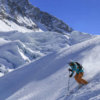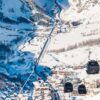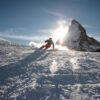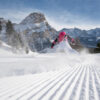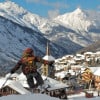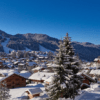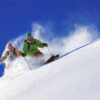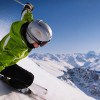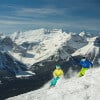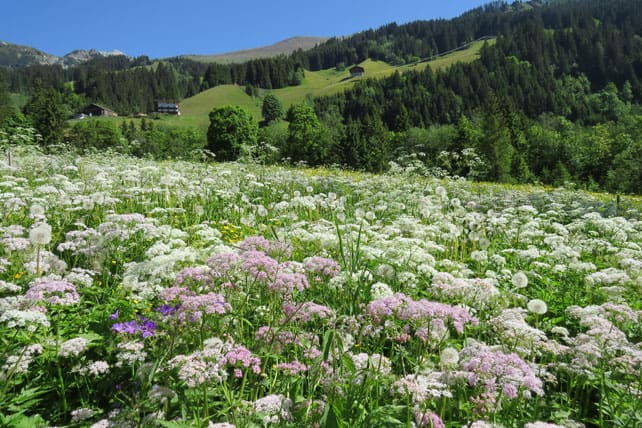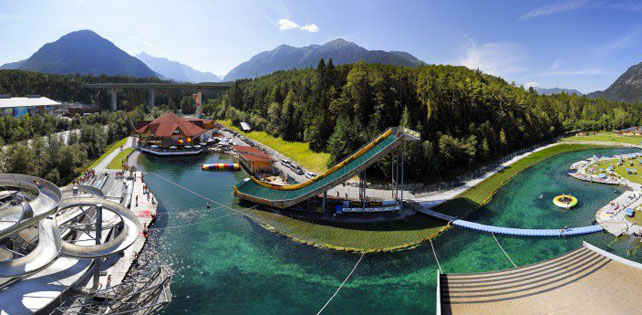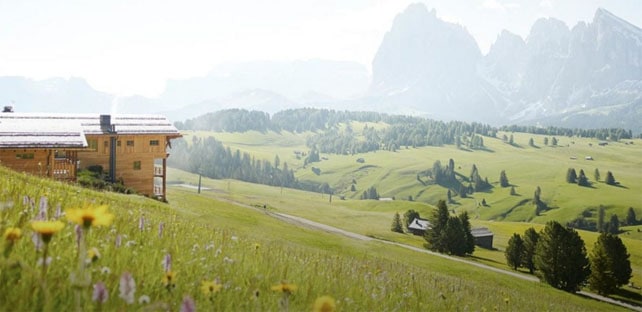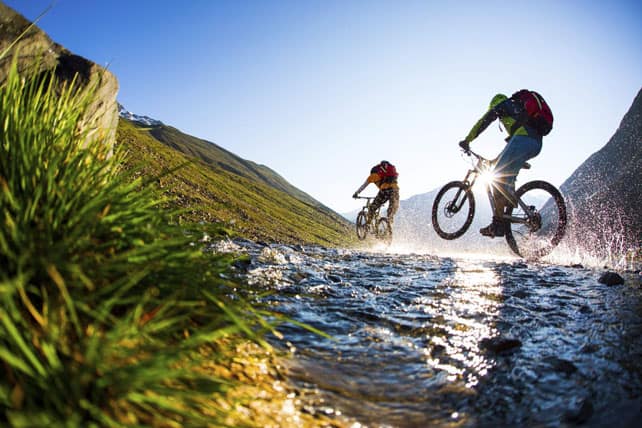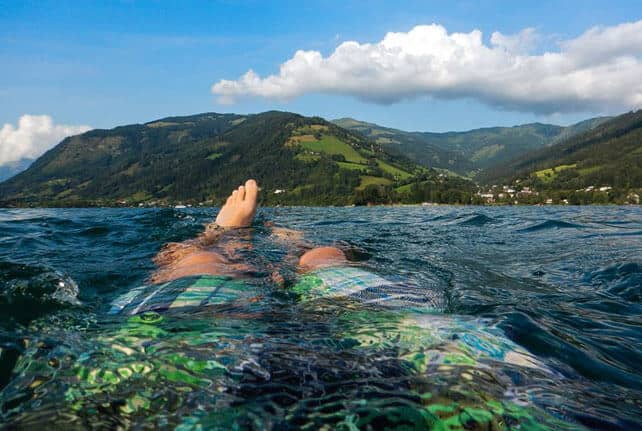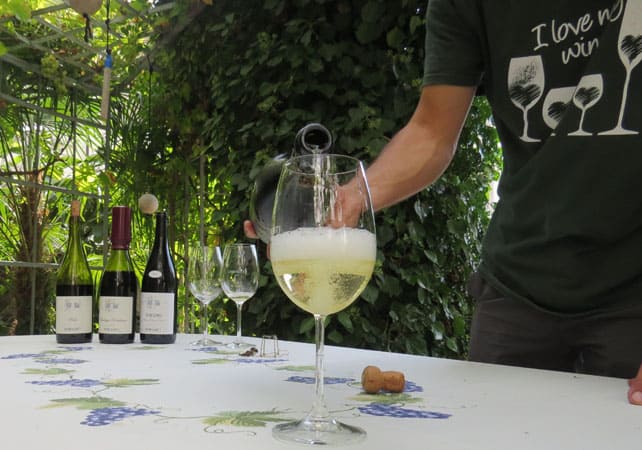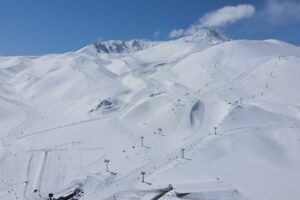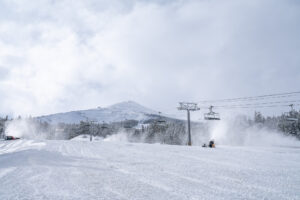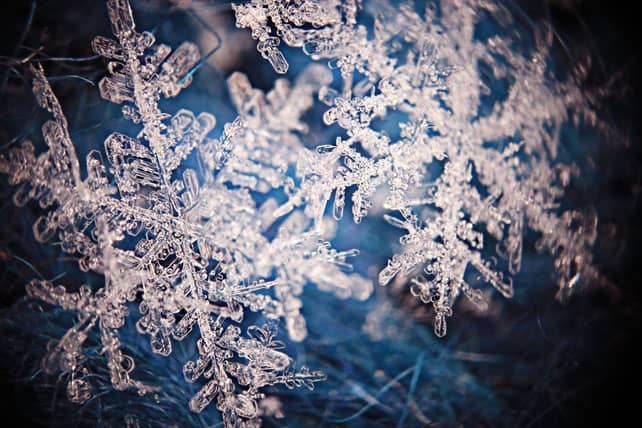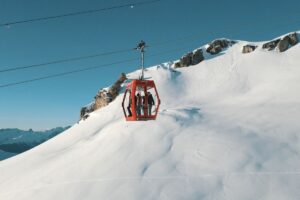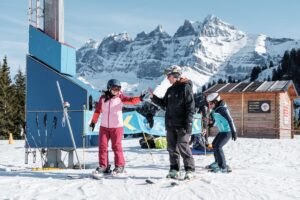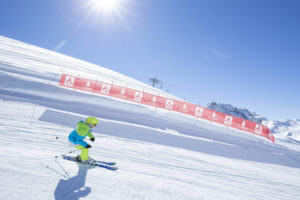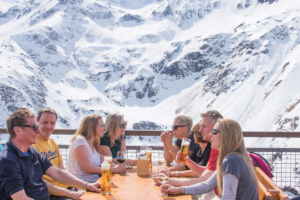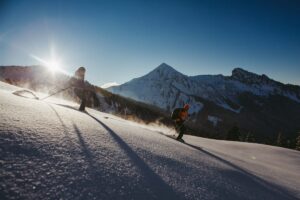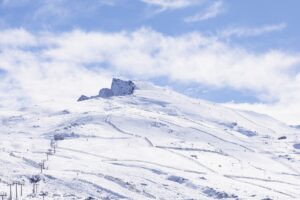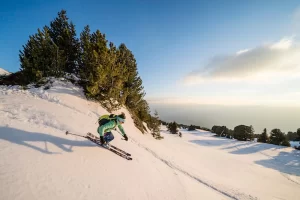WeLove2Ski Snow Report Latest reports This week, there was some welcome snowfall at the village level in the Alps, which excited the locals and got them sharing what was going on. ...
Summer in the Alps: How to Get the Best From the Season
SUMMER IN THE ALPS: FEATURED
SUMMER IN THE ALPS: HOW TO GET THE BEST FROM THE SEASON
Yes, okay, we’re a ski website, and bombing about on the white stuff is our chief joy and raison d’etre. But every time we go to the mountains in June, July or August, we can’t help wondering, “Could our dear old planet be any more beautiful?”
There’s just so much to enjoy about summer in the Alps. The smell of it, for a start. The sappy tang of a pine forest; sweet, fresh grass on a riverbank, a peaty footpath: they’re all gorgeous in their own right. But they’re also tightly-bound in our minds with memories of freedom and adventure, because what’s really striking about the mountains in summer is how much you can do in them.
Hiking, mountain biking, running, cycling, mountaineering, e-biking, rock-climbing, yoga, rafting, canyoning, swimming, sledding, lounging about in spas…the list ranges from the seriously scary to the utterly indulgent, and each is played out against a vast, vertical panorama of trees, sky and rock. For restless souls like ours, hungering for the great outdoors, it’s the perfect combination.
So how do you get the most from this short but spectacular season? Here – to introduce our Summer in the Alps section - are the questions you need to ask yourself.
What kind of holiday do I want?
Be clear about your objectives. Do you already love an activity, and want to test your skills in a new and more challenging environment? Or do you want to try something new? Are your kids the focus of the trip? Or are you in the market for a relaxing break somewhere beautiful?
How you answer this question should determine where you go. Every mountain town, and every valley, is different, and some suit certain activities better than others. It’s not just a question of the terrain. The more clear-sighted resorts have built on their natural advantages by investing heavily in infrastructure, too.
Say, for example, you do a lot of downhill mountain biking at home, and you want a crack at a bigger slope. You’ll need to put the French resort of Les Gets – which hosts the Crankworx World Tour – on your short list. Not only is it home to 90km of lift-serviced trails, including 13 separate downhill tracks. Nearby, Morzine and Chatel have highly-rated bike parks too.
Here's taste of one of the black-rated MTB tracks in Les Gets...
ARVE Error: For the maxwidth (maxw) option you need to have normal or lazyload mode enabled, either for all videos in the plugins options or through shortcode e.g. [youtube id=123456 mode=normal maxw=999 ].
Other resorts with well developed MTB infrastructures include Solden in the Austrian Tirol, Les Deux Alpes in France, and Verbier in Switzerland. Our guide to the best resorts for mountain biking details many more and is aimed at complete MTB beginners, as well as experts.
Or how about a gentler cycling experience? The popularity of e-biking in the Alps has mushroomed in recent years. Kitzbuhel and Westendorf in Austria, The Val di Fiemme in Italy, and Val d’Isere in France are among the resorts that embraced e-biking - and several more are featured in our guide to the best resorts for easy cycling.
The same rules apply for family holidays. You can of course stick a pin almost anywhere in the Alps, and take your kids there for an energetic break amidst breathtaking scenery. But you’ll add variety and – in some cases – wet-weather alternatives if you target one of the resorts that’s bending over backwards to keep children entertained.
The €63m Aquamotion swimming complex in Courchevel is a great example of the kind of facilities now available. Area 47 in the Otztal (below) is another.
Check out our guides to family holidays in the French Alps and the region’s best adventure parks for more.
Should I stay in buzzing resort - or a remote mountain village?
For those who want swimming-pools, bike parks, golf courses, indoor sports centres, and lots of instructors, then the big, well-established resorts are the best bet.
That doesn’t mean, however, that you’re going to have dour, urban experience. Take Chamonix, for example. The famous French town is the Alpine capital of hard-core mountain sports and attracts thousands of trail runners, trekkers, climbers and mountaineers each summer – as well as less active tourists who come to marvel at Mont Blanc. So, yes, it’s busy: but it’s also fired by an adventurous spirit, and ringed by soaring peaks. Even in midsummer it’s an inspiring launchpad.
Meanwhile, at the gentler end of the spectrum, Kitzbuhel is a lovely base. Its Sound-of-Music scenery is well suited to e-biking, walking and golf. Five-star hotels, state-of-the-art spas and an historic, medieval core add to the elegant but friendly atmosphere.
But if the whole point of your holiday is to seek out some solitude – well, you can do that too. Villages such as Bonneval-sur-Arc, at the far end of the Maurienne Valley in France, or Chamois in Italy’s Aosta Valley (which can only be reached by cable-car) offer a profound sense of peace and quiet. So does car-free Murren in Switzerland.
And don’t forget the hotels and mountain refuges that are set high in the mountains. The Adler Mountain Lodge in the Italian Dolomites is, for example, one of the most serene luxury retreats we know.
What’s my budget?
The Alps in summer suit almost every kind of budget: and the good news is that almost everything is cheaper than it is in the winter (NB all prices in this section are for the cheapest week in July 2017).
If the purse strings are drawn tight, then campsites and no-frills, self-catering apartments are a canny choice for accommodation. For example, the Versoyen campsite in Bourg St-Maurice in France costs €91pp a week for two people plus tent and car, and €68pp for a family of four. There’s white water rafting on the doorstep, and the resorts of La Rosiere and Les Arcs are nearby. Meanwhile, in the pretty Austrian village of Westendorf, a week in a two-room apartment (sleeps four) can be had €85pp, self-catering
Of course, if it’s luxury you’re after, you will have to spend more. But it won't be as much as you'll pay in an upmarket beach resort. At the ravishing Adler Mountain Lodge in the Dolomites, for example, a week in a junior suite starts from €973pp, full board, including guiding. Meanwhile in sybaritic Seefeld, in Austria, one week in the four-star superior Bergresort Seefeld (which has a 1400m2 spa), costs £749pp, half-board including flights and transfers with Inghams.
Bear in mind that prices vary between resorts. In summer, a boutiquey mid-range hotel in sought-after Chamonix is nearly twice the price of a roughly similar property in Madonna di Campiglio in the Italian Dolomites (€105pp a night vs €60pp a night).
The price of the extras varies too. Mountain bikers exploring all the bike parks and trails of the Portes du Soleil (which include Les Gets, Morzine and Chatel) will pay €92 for a five-day lift pass. In Solden in Austria, the price is €138 for five days. MTBers exploring the trails and bike parks of the Dolomites will pay €140 (summer 2017 prices).
Bargain hunters should also keep an eye out for freebies. Scout the resort websites to find out what’s on offer, and ring up if you can’t find any sign of them.
For example, high-altitude Tignes in France has “My Tignes OPEN” - a card which comes free with some accommodation, and lets you sample a wide range of sport and activities (volleyball, swimming, kayaking, archery etc) at no extra cost. Meanwhile, Les Arcs offers two-for-one deals on activity cards when you book accommodation through the tourist office. In the Val di Fiemme in Italy, some hotels, B&Bs and apartments offer guests the FiemmE-Motion Plus card which allows free use of key mountain lifts, as well as public transport.
Innsbruck has a free Welcome Card, and people staying a minimum of two nights can have one free ascent or descent of some of the lifts. Those staying in the Alpbachtal and Wildschonau receive a free Alpbachtal Seenland Card or Wildschonau Card giving them special offers including daily free use of all mountain lifts in the areas. In Zell am See-Kaprun you can stay in participating accommodation and enjoy free use of the cable-cars with the free Zell am See-Kaprun Summer Card.
And don't forget Welove2ski’s regular summer deals update for late and early-booking discounts.
How important is food and wine?
The custom of wealthy skiers has done wonders for the Alpine restaurant scene – and you can still get the benefit of it in the summer. Bear in mind, however, that not every resort is a gastronomic hotspot, and not every top-notch restaurant is open in the “off” season.
Those in the market for Michelin-starred fine-dining, should add the almost-neighbours, Megeve and Chamonix to their short list. Meanwhile, for beautifully-cooked meat served in rustic mountain restaurants, it’s hard to beat Zermatt. But in our view, the best destination for food and wine is the Italian Dolomites.
You can thank the vast variety of local ingredients for their excellence. Fish from the Adriatic, olives from Lake Garda, fruit and veg from the sun-drenched valleys, venison from the mountains, pasta, gnocchi, orzotto, gelato: the list is almost endless, and it’s complemented by some superb wines.
Make sure you sample the Alta Badia’s Peaks of Gastronomy programme (in which Michelin-starred chefs collaborate with mountain huts). Drop in to Stefano Ghetta’s restaurant, ’L Chimpl, in the Val di Fassa, to eat his soft egg, cheese and truffle dish, uovo sofici di Tamion. And sample the local Teroldego and Marzemino reds, and Trentodoc Spumante sparkling white. You’ll be in heaven.
SUMMER IN THE MOUNTAINS
The clocks have gone back, the nights are drawing in. We’ve had Halloween and Bonfire Night. The Fall Line Skiing Magazine Gear Guide 2025 is on the shelves and the Northern and London Show...
Here's our lexicon of snow. Got any favourites you want to add?
Fly Above the Alps: Discover La Plagne’s New AÉROLIVE Cable Car Adventure This winter, La Plagne is introducing something seriously different: La Plagne AÉROLIVE, a ride that goes beyond the typical...
Even the most seasoned skiers feel cautious or tense – whether it’s because they’re getting back on skis again after a year away from the snow, or perhaps it’s because there’s a complete a white-out...
The complete guide to the popular French ski resort of La Plagne. Is it the right place for your next ski holiday? Find out here.
When it comes to booking the perfect ski holiday, it can be tough to know where to start. Should you choose a self-catered apartment, half-board hotel, a chalet hotel, or just surf around Airbnb...
We all love our ski trips and although most of us are not oblivious to the environmental cost these trips entail, sometimes it is hard to know how best to mitigate their impact. Studies show that the...
Can you ski in Spain? Absolutely! Spain may not be the first destination that comes to mind for skiing, but it boasts some fantastic ski resorts, especially in the Pyrenees and Sierra Nevada. With...
The area is made up of 23 resorts spread across the Vercors, the Oisans, Belledonne and Chartreuse mountain ranges.

